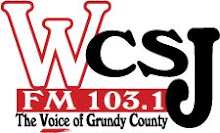Q: Which U.S. state consumes the most spam per year?
Hawaiian soul food
dish of seasoned rice, dried seaweed, and Spam
Isn't Spam sushi a culinary crime? Not in Waikiki.
By Constance Hale
As Honolulu gourmands gear up for an unusual street festival, there's just one question on their lips: Could anything possibly top last year's Spam Jam musubi—a giant version of the island snack that consists of a brick of rice, a slab of Spam, and a belt of black seaweed—at its record-busting length of 313 feet?
The making of the gonzo musubi—which required more than 275 pounds of rice, 1,650 slices of Spam, and 600 feet of the dried seaweed called nori—kicked off last year's second annual Spam Jam, held along Waikiki's Kalakaua Avenue. And, yup, this year the wacky festival once again celebrates Spam, the luncheon meat everyone loves to ridicule. Everyone, that is, but Hawaiians. Fiftieth staters consume nearly 6 million cans a year, or almost six cans for every man, woman, and child. Some call the gelatinous pink pork "Hawaii's soul food."
Spam worked its way into the hearts—and arteries—of Hawaiians during World War II. Fresh meat was scarce at the time, so civilians loaded up on the brand-name C ration well known to GIs. Needing no refrigeration, the proletarian pork product soon became one of three items islanders stock up on (along with toilet paper and rice) during threats of hurricanes, tsunamis, or dockworkers' strikes.
More recently, McDonald's added Spam to its Hawaiian breakfast menu, while island chefs toy with it. Hawaii's Spam Cookbook lists recipes for Spam omelets, Spam and beans, and Spam with Japanese radish fermented in a syrupy sauce.
But it's Spam musubi, introduced in the 1980s, that reigns supreme in delis and 7-Elevens statewide and in Hawaiian eateries on the mainland. Foodies insist the Tamashiro Market in Honolulu serves the absolute best Spam musubi, its sticky rice flecked with furikake, a blend of seaweed, sesame, and other seasonings. It may not be 313 feet long, but, hey, it only costs $1.25. This year's Waikiki Spam Jam, held April 30, features live music, food, crafts, a Mr. or Ms. Spam contest, and hula performances. Information: (808) 923-1094, www.waikikiimprovement.com.
A: HAWAII


 The lone hit from the There's a Riot Goin' On album, "Family Affair" is truly a record that is ahead of its time. The overall urban grit of the atmosphere was certainly picked up in the 1970s particularly by groups like War. There are also the percussion sounds, which would later be utilized to a great degree by rap artists of the 1990s. The song itself is a loose comment on communal living, something that was extremely prominent in the early '70s. But make no mistake; the groove and feel are the main stars here.
The lone hit from the There's a Riot Goin' On album, "Family Affair" is truly a record that is ahead of its time. The overall urban grit of the atmosphere was certainly picked up in the 1970s particularly by groups like War. There are also the percussion sounds, which would later be utilized to a great degree by rap artists of the 1990s. The song itself is a loose comment on communal living, something that was extremely prominent in the early '70s. But make no mistake; the groove and feel are the main stars here.
